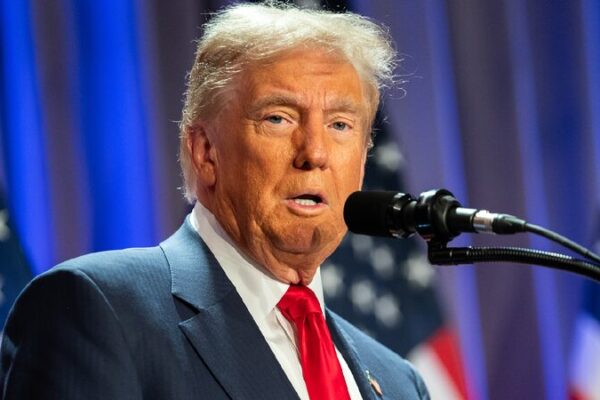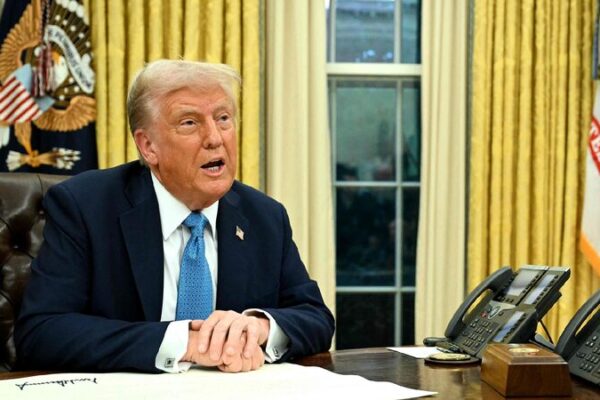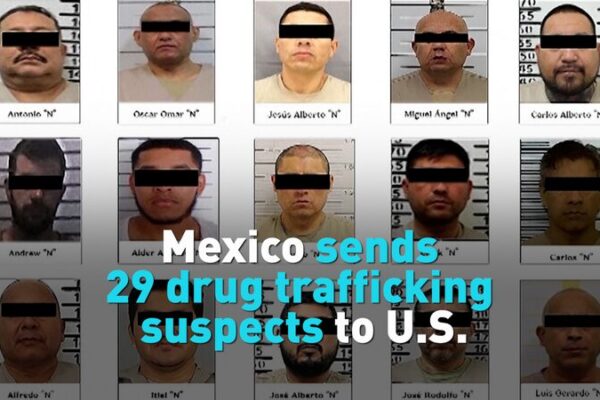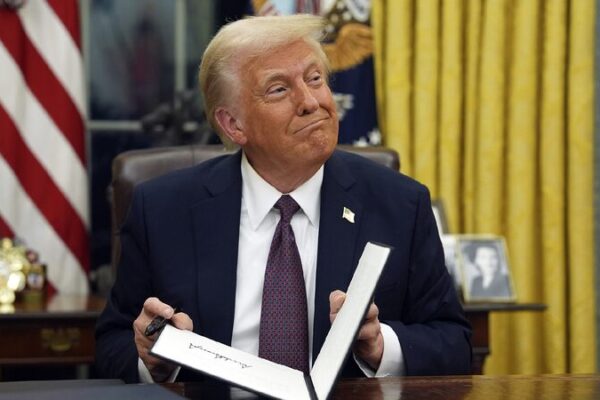Trump’s Tariff Threats: Real Danger or Political Posturing for Canada and Mexico?
“The most beautiful word in the dictionary is tariff,” declared Donald Trump during his campaign trail last October. With less than a week before his inauguration, Trump has announced ambitious plans to impose hefty tariffs on imports from the United States’ two largest trading partners: Canada and Mexico.
Trump pledged that on his first day in office, he would sign an executive order imposing a 25 percent tariff on all imports from Canada and Mexico. He cited the need to address illegal immigration and drug trafficking into the U.S. Additionally, he unveiled a plan to establish a new department called the “External Revenue Service” to collect tariffs, duties, and all revenue from foreign countries.
Canada’s Response: Retaliation on the Horizon?
Canadian Prime Minister Justin Trudeau has not taken these threats lightly. Days after Trump’s declaration, Trudeau made an unannounced visit to meet with the president-elect. Reports suggest that during a dinner at Mar-a-Lago, Trump floated the idea of making Canada the 51st state of the United States, a notion Trudeau firmly rejected.
“No American wants to pay 25 percent more for electricity or oil and gas coming in from Canada,” Trudeau stated in a recent interview. He emphasized that introducing such tariffs could raise energy prices for American households and harm the strong trade relationship between the two nations.
Canada, as the top U.S. partner for trade in goods and services, exported 77 percent of its goods to the U.S. in 2023. Canadian officials have indicated that they are preparing retaliatory measures, with everything “on the table,” including tariffs on American products like steel, ceramics, and orange juice.
The potential for a trade war has both countries on edge. The Canadian Chamber’s Business Data Lab estimates that if Trump follows through on his tariff threats, it could reduce the U.S. GDP by $467 billion, with an average loss of $1,300 per American.
Mexico’s Perspective: Impact on Near-Shoring and Trade
Mexico, now the United States’ largest trading partner, has also expressed concern over Trump’s proposed tariffs. Mexican President Claudia Sheinbaum responded with an open letter emphasizing the need for cooperation instead of threats.
Trump also threatened to impose tariffs exceeding 200 percent on vehicles imported from Mexico, aiming to protect U.S. auto manufacturers. Emmanuel Loo, acting head of the Ministry of Economy of Nuevo León State of Mexico, called such tariffs unrealistic and noted they would disrupt the stability of supply chains in North America.
Data shows that U.S. imports from Mexico reached $475 billion in 2023, with key exports including computers, cars, and motor vehicle parts. Tariffs of the magnitude proposed by Trump could severely damage Mexico’s manufacturing sectors and ultimately hurt American consumers who would bear the increased costs.
The Future of the USMCA Trade Deal
Trump’s tariff threats pose a direct challenge to the United States-Mexico-Canada Agreement (USMCA), which replaced the North American Free Trade Agreement (NAFTA) in 2020. The USMCA was a result of Trump’s efforts during his first term to renegotiate trade terms he viewed as unfavorable to the U.S.
The agreement is set to be reviewed in 2026, but Trump’s aggressive stance might be an attempt to push for an early renegotiation. The Employers’ Confederation of the Mexican Republic has warned that these tariff threats generate uncertainty in strategic sectors and jeopardize millions of jobs reliant on trade between the three countries.
Real Threat or Political Posturing?
While Trump’s tariff plans have created considerable concern, some analysts believe they might be more of a negotiation tactic than a concrete policy. William Reinsch, a former president of the National Foreign Trade Council, suggested that Trump could be leveraging these threats to gain concessions from Canada and Mexico.
Citizens in Canada and Mexico also express skepticism. A Canadian resident commented that such policies might harm American consumers more than producers in Canada, as they would end up paying higher prices. Another pointed out that during Trump’s previous term, many threats were made but not all were acted upon.
As the inauguration approaches, both Canada and Mexico are preparing for possible outcomes. Whether Trump’s tariff threats become reality or remain political posturing, the implications for international trade and relations in North America are significant and will be closely watched by the global community.
Reference(s):
Analysis: Are Trump's tariff plans for Canada, Mexico real threats?
cgtn.com








